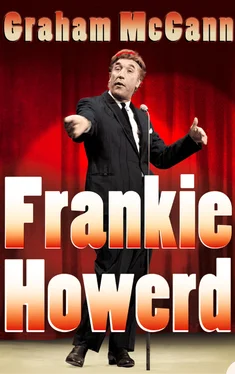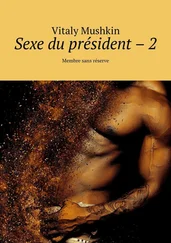When Friday arrived, Howard â buoyed by the familiar sight of a boisterous military audience â gave what he felt at the time to be the performance of his life. 7 Immediately afterwards, however, he was crushed to discover that Harry Lowe had not been present to see it. Fearing that he would probably fail in the future to be as good as that again, he felt that his big chance had already come and gone.
Slumped in a chair back at his home in Eltham, Howard spent the next few days in a âstate of indescribable melancholyâ. 8 Then, out of the blue, came a request from the Stage Door Canteen: as there was a shortage of performers for the following Friday night, the message said, would Sergeant Howard mind filling in? At first, he was disinclined to take up the offer, feeling that there would no longer be any real point to further exposure, but eventually, after being encouraged and cajoled by his mother, he relented: he would go, he mumbled miserably, but only in order to give âa valedictory performance before abandoning all hopes of a show-business careerâ. 9
Harry Lowe, once again, was not there, but this time Howard could hardly have cared any less. Expecting nothing of any consequence to come from the performance, he went on stage at his most relaxed, and he proceeded to have some fun. The act went even better than it had the last time: every gag, every routine and every semi-improvised comic exchange with certain individuals among the audience seemed to trigger another crescendo of laughter. Howard could do no wrong, and he knew it â and he loved it.
In an office elsewhere in the building, a visiting booker â there doing business on behalf of a major London agency â grew curious as to what, and more importantly who, was causing so much noise in the auditorium. Setting off along the corridor and down the stairs, he managed to slip inside the door at the back of the theatre and stood there to watch the remainder of Howardâs act.
When it ended, the booker, who had been greatly impressed, raced backstage. âWho represents you?â he panted. âNobody,â replied Howard, trying hard not to sound bitter. âIâm with the Jack Payne office,â the man announced. âWould you like us to represent you?â
Howard, who could still recall with a shudder that awful night at the Lewisham Hippodrome when he had shared the stage but none of the applause with the hugely popular Jack Payne and his band, was incredulous. Looking this stranger up and down for a few seconds â taking in the scuffs on the toes of the old shoes, the deep creases all over the trousers, the stains on the front of the open-necked shirt and the beads of sweat that were now sliding down the brow â he came perilously close to concluding out loud that the whole thing must be some sort of sick joke.
It soon became apparent, however, that the stranger was being serious. âYouâll have to see Frank Barnard,â he added matter-of-factly. âHeâll want to see your act.â Howard, now blushing beetroot-red and starting to lose control over his stutter, managed to reply: âOf course ⦠Yes ⦠Um ⦠Yes ⦠Whoâs he?â
Informed that Frank Barnard was Jack Payneâs general manager, Howard then asked where he could expect the great man to go to see him perform. âIn his office,â he was told. â His office! â a patently horrified Howard shrieked. âI c-canât perform in an office! I need an audience.â After being told, somewhat tetchily (âLook, sonny â¦â), that Mr Barnard â a hugely experienced and no-nonsense old Geordie â already had more than enough people to see, he was handed his final chance: âAre you interested, or arenât you?â This time there was no hesitation: âYou bet I am!â The stranger shook his hand and smiled: âThen you will perform in his office.â
Howard was left in a daze. Even the daunting prospect of another audience-free audition failed to dampen down the tremendous feelings of elation: his talent had at last been spotted, and, on the very day that he had contemplated abandoning his long-cherished ambitions, he was finally getting his chance. Just before the unexpected meeting had ended, Howard suddenly realised that, throughout all of the heightened confusion, anxiety and excitement, he had not yet asked the visitor his name. âItâs Stanley,â the stranger revealed. âStanley Dale.â 10
Howard would always claim, on the basis of this encounter, that Dale was the man who discovered him, but this was not strictly true. Dale may have been the first person from the agency to knock on the performerâs dressing-room door, but it was one of his superiors within the Jack Payne Organisation, the production manager Bill Lyon-Shaw, who had made the actual discovery.
Lyon-Shaw â responding to a tip from a talent scout â had gone down to the Stage Door Canteen on that particular day alongside Jack Payne to take a look at a promising young comedian and impressionist by the name of Max Bygraves. When they arrived, Lyon-Shaw noticed that Frankie Howard was also on the list of artists who were due to appear:
I said to Jack, âOh, God, I know that chap, Iâve seen him before.â Iâd actually seen him a few years before, during wartime, in a little concert party in Rochford. I used to live in Southend, you see, and a lady whom I knew there called Blanche Moore â who never gets the credit she deserves for finding Frank â had written to me and said, âIf you ever get a chance to come back again to Southend, you must come down and see my concert party. We have a very funny man called Frankie Howard.â So, one leave weekend, I went down, and saw this grotesque, in Army uniform, come on to the stage, do a whole lot of âooh-aahsâ and the odd âoh, no, missusâ, tell mostly Army-style jokes and then he ended up with the song âThree Little Fishesâ â which, of course, was unusual and very good. So at the Stage Door Canteen, after weâd seen and liked â and decided weâd book â Max Bygraves, I said to Jack Payne, âLook, this Frankie Howard: heâs quite funny. Letâs just stay a bit and see what you think of him.â And so we stayed and saw Frank, and Jack liked him. He said, âYes, heâs a funny man, heâs different, not at all like the typical slick comic â letâs have him, too.â And thatâs how we got Max Bygraves and Frankie Howard at the same time. 11
Whether it was Payne, then and there, who dispatched Dale backstage to make the first official contact with the two new potential clients, or just Dale (in all of the noisy chaos of the moment) acting entirely on his own initiative, remains unclear, but it certainly seems that, during his time inside Howardâs dressing-room, he made no attempt to undersell his own importance within the agency. The fact was that the comedian, who was struggling to believe his luck, was in no state to question anything his visitor said.
Howard was just delighted to have made the acquaintance of Stanley Dale. Admittedly, Dale did not fit the image of the conventional show-business intermediary, but then neither did Howard fit the image of the conventional stand-up comedian. What boded rather well, he reflected, was the fact that their relationship had been founded on such an encouraging convergence of opinion: namely, they both had faith in the star potential of Frankie Howard.
What brought Howard straight back down to earth with an abrupt and painful bump was the thought that this faith would still prove fruitless unless he now went on to win a similar vote of confidence from the notoriously gruff and bluff Frank Barnard. Having failed so many auditions in the past that had been held under similarly cold and unwelcoming conditions, he found it hard now to hold out much hope. Barnard was based in an elegantly capacious set of rooms two floors above Hanover Square in Mayfair. Howard had not even climbed the stairs before his big day started going ominously awry.
Читать дальше












